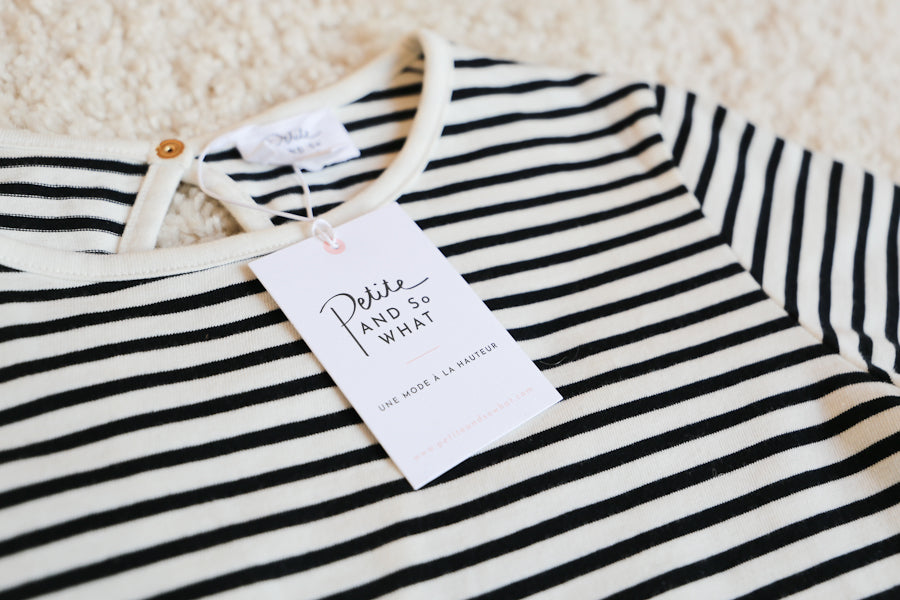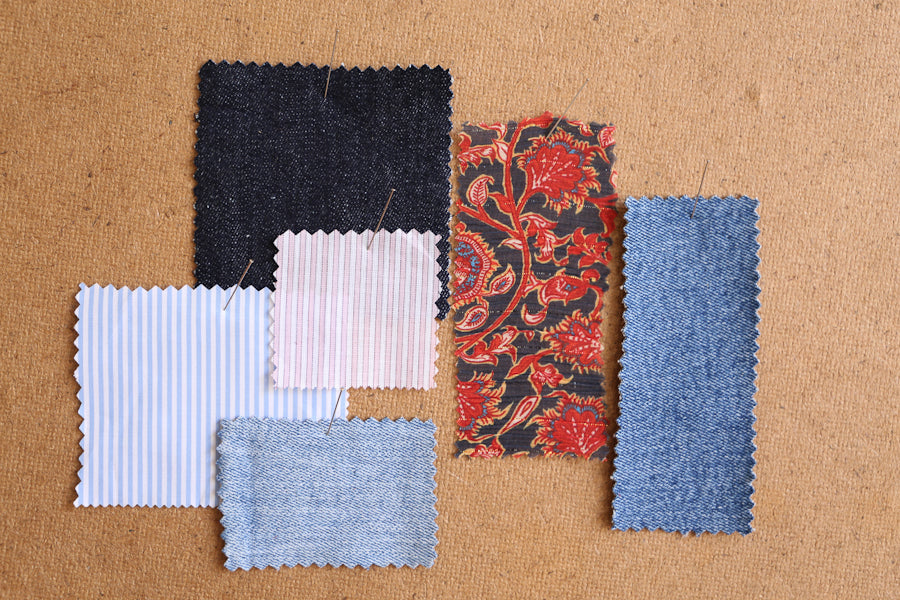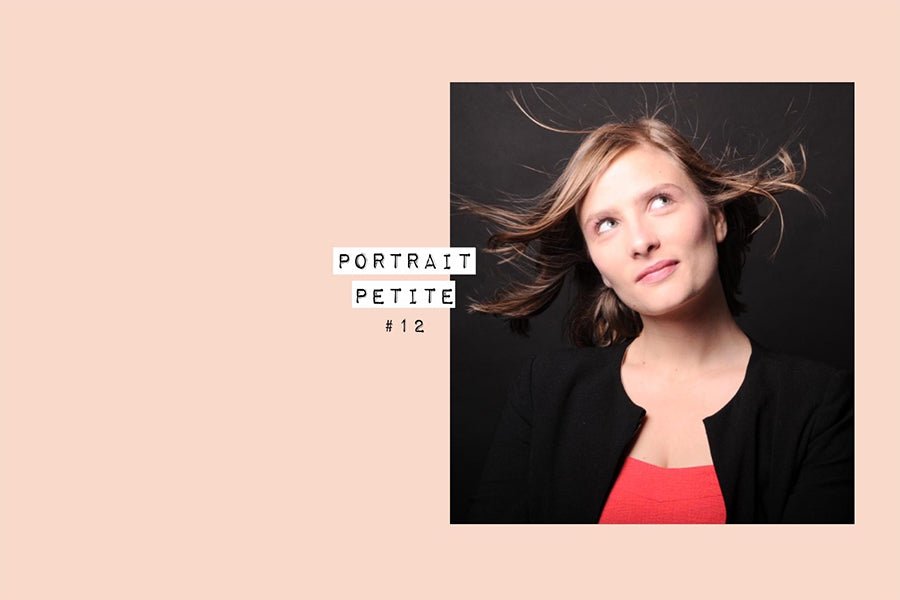Today, I'd like to introduce you to Tiphaine Croville, a petite 1.52 m tall, who has turned a dream into reality. A communications officer, Tiphaine writes on the side and is an author of fantasy and historical novels.
Writing is a hobby for me, and I love to let my imagination run wild. Above all, I write for myself.
Can you start by introducing yourself?
I'm in charge of communications for an energy company in Paris. In my spare time, I write books. Writing is a hobby for me, I love to be in front of my imagination and let myself be carried away. Above all, I write for myself.
I'm an optimistic person who laughs easily. I like traveling and playing badminton. But what I love most of all is walking! I love getting fresh air, going for walks in quiet places in the countryside and breathing in the fresh air.
Can you tell us more about your background?
In high school, I opted for a scientific baccalaureate, a subject that ultimately had nothing to do with literature. Just goes to show, you can love maths and French! I went on to do a double bachelor's degree in communications and literature, and then went on to do a master's degree in communications.
At what age did you start writing?
Even as Petite, I wrote a lot, and I've always loved making words sing to each other. As a petite anecdote, I often wrote poems to my parents, but they were "horrible" poems (I'm ashamed of myself when I reread them today). I made everything rhyme. I'd write "poems" like "my sister, your breath stinks, but I love you anyway".
It was at secondary school that I really realized the value of words. I discovered another aspect of writing, and that's when I really started to write.
When I got to high school, I set myself a challenge: I wanted to write my own novel. It was in my final year of high school that I began writing the first drafts of my "Phitanie" trilogy. Going back to university allowed me to devote myself fully to it. I finally managed to write the three volumes of "Phitanie" during my 5 years of higher education.
What made you want to write?
The story of "Phitanie" came to me in a dream. One night, I found myself in a dream in which I was the heroine. I had the power to move in different directions, I possessed different powers, and by dint of dreaming about it, I decided to write down what I was experiencing in my dream.
Encouraged by those close to me, I decided to publish it. So I started the publishing process. I sent my manuscript to countless publishing houses, from the petites to the most prestigious. I don't know if it's beginner's luck, but my book immediately caught on. I was contacted by the "Rebelle" publishing house, which offered to publish the 3 volumes of "Phitanie".
That's where it all starts.
"Wow today I have 4 books with my name on them in my library!"
Can you tell us a little about the publishing process: from manuscript to book publication. In concrete terms, how does it work?
First and foremost, there's the writing process. There are 2 types of writers. Those who, like me, will have an outline of their story in mind, but will let their inspiration speak for itself as they write. And those who draw up a very detailed outline of their ideas from the outset and stick to it.
Depending on the type of book, there's more or less research to be done. This was a key step for me when writing my second historical book, "Heavings Park".
Once you have your manuscript, you have it proofread by someone you know. This proofreader is called a "beta reader". In my case, it's my older sister who's in charge of this first proofreading.
The manuscript is then sent to the publishing houses. This is a slow period, when you're waiting to hear back from the publishing houses. This waiting time can vary, but on average it lasts from 3-6 months to 1 year for the big houses.
The signing of a contract marks the beginning of the collaboration between an author and a publishing house. The contract specifies the percentage of royalties (10% on average), the duration of the contract (on average 5 years, renewable) and other obligatory details.
The manuscript is then sent for proofreading. Everything is checked at this point: typography, spelling, grammar and vocabulary. There's also a logic check to make sure there are no inconsistencies in the story.
The aesthetics of the cover are also carefully considered, with the choice of colors, typography and illustration.
The final stage is the launch. Publication is generally handled by the publishing house. The publishing house offers to promote your book to the general public by having you take part in book fairs.
You've just released your new book "Heavings Park", which is very different from your previous trilogy "Phitanie". Can you tell us a little more about these two works?
My two works are completely different.
"Phitanie" is a fantasy trilogy. The story's heroine, Heloïne, is a 19-year-old woman from our world who finds herself in a parallel world closer to the center of the earth. There she discovers Phitanie, a magical world in which the inhabitants can master the elements, and in which fantastic creatures and animals live side by side.
"Heavings Parks" is a historical novel that tells the exciting love story of Jane Baker, a chambermaid, and Lord Heavings, an English earl.
How do you manage to balance your work and your passion? How have you found your balance?
For "Phitanie", it was very simple because I wrote it during my studies. I had plenty of time! For "Heavings Parks", it was different. It took me a year and a half to write it, at a fairly changeable pace. For the first few months, I had to impose a rhythm on myself to make progress. I wrote for 2 hours every Sunday morning. Then, as the story progressed, I started writing a lot more. I was able to devote myself fully to it during my summer vacations.
Do you have any ideas for your next book?
My publisher Rebelle has already commissioned a new book. I have a few ideas in mind, but nothing concrete yet. I'd like to write a fantasy duology. I'm thinking of a romance set in a world close to our own, with magic, wizards and other fantastic creatures.
How do you see writing? What are your longer-term projects? Would you like to make a living from it, or does this pace suit you?
Writing is a hobby for me, and I love to let my imagination run wild. Above all, I write for myself. I'd be very frustrated, and my inspiration would be shattered, if I had to write under duress. And that's how it can be when you make a living from writing. We're obliged to write one book a year to generate income.
Today, I can't imagine making a living from writing alone.
Finally, a few questions to get to know you better:
What's your favorite thing to do in your spare time?
Going for a walk! I love nature, it inspires me!
Your favorite book?
Jane Austen's "Pride and Prejudice".
The writer you admire?
Not to repeat Jane Austen, I'd say J.K. Rowling, the author behind "Harry Potter".
Your everyday outfit?
Casual chic without hesitation. For example, I like to wear jeans with a smart jacket.
Your favorite piece at Petite and So What?
The three things that never leave your handbag?
It's not very original, but I'd say my phone, my current reading and my diary.
What's your latest favorite?
"The Bridgerton Chronicle", a series available on Netflix. I loved it! I finished it in a day.
Any message you'd like to pass on to all the " petites " who read your book?
If you follow Petite and So What, it's because you embrace your size. And I think you have to turn your size into a strength. Even if it's not easy every day, because when you're petite, people tend to associate you with children. So we give it our all to show what we're capable of. The good thing is that we're all the more likely to surprise them, in a positive way of course. Because despite our petite size, we're really competent and ambitious. People don't expect that and are often pleasantly surprised.
Thanks a lot Tiphaine!










